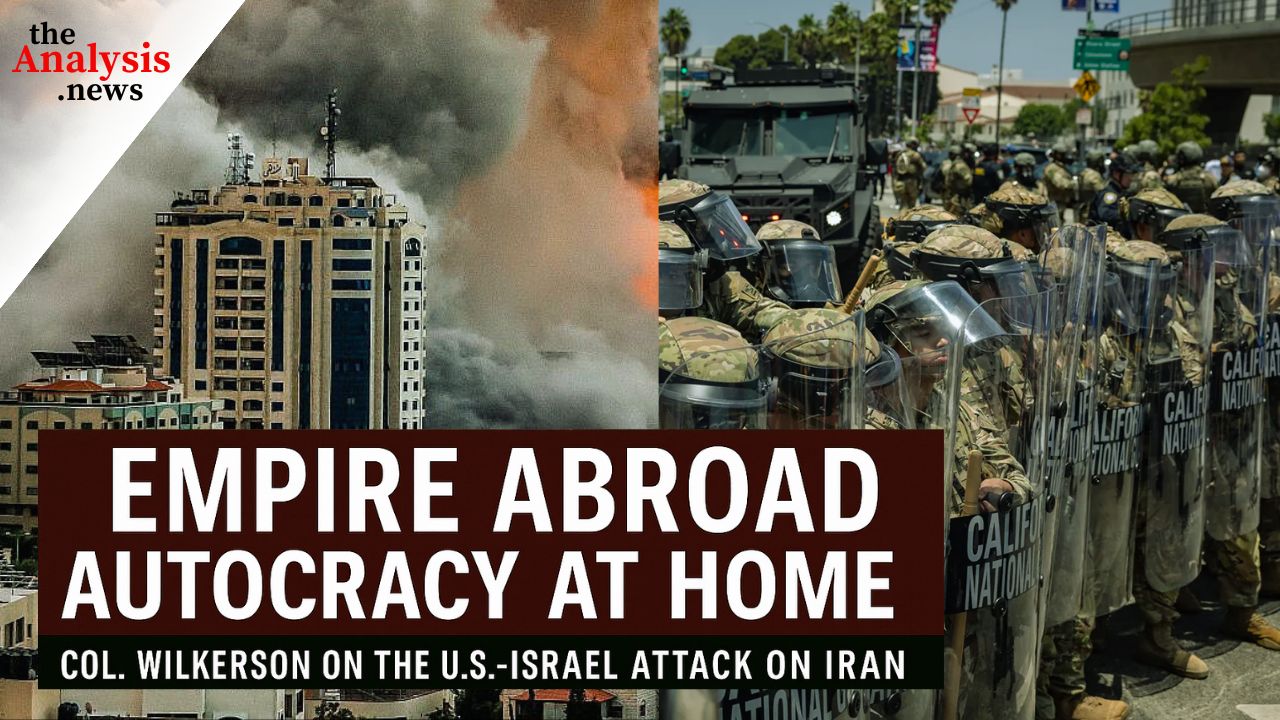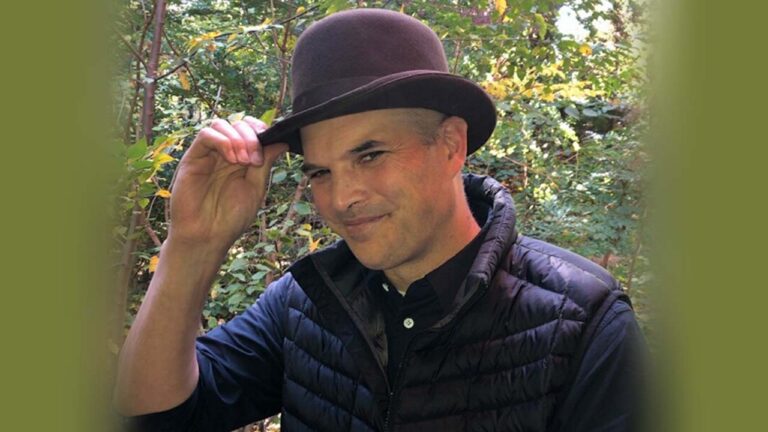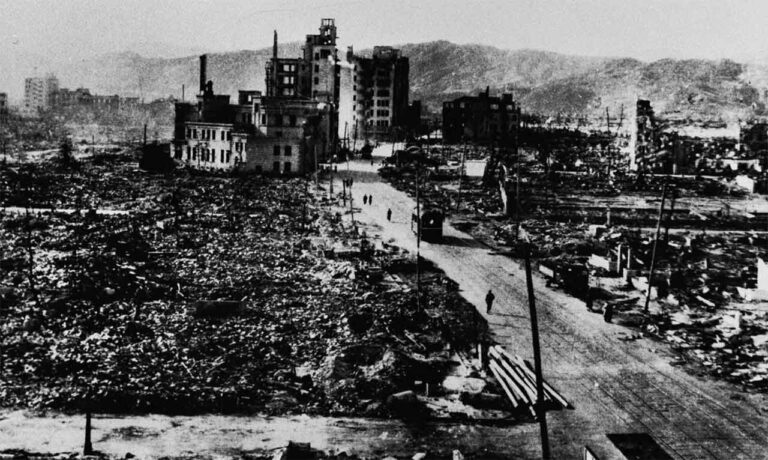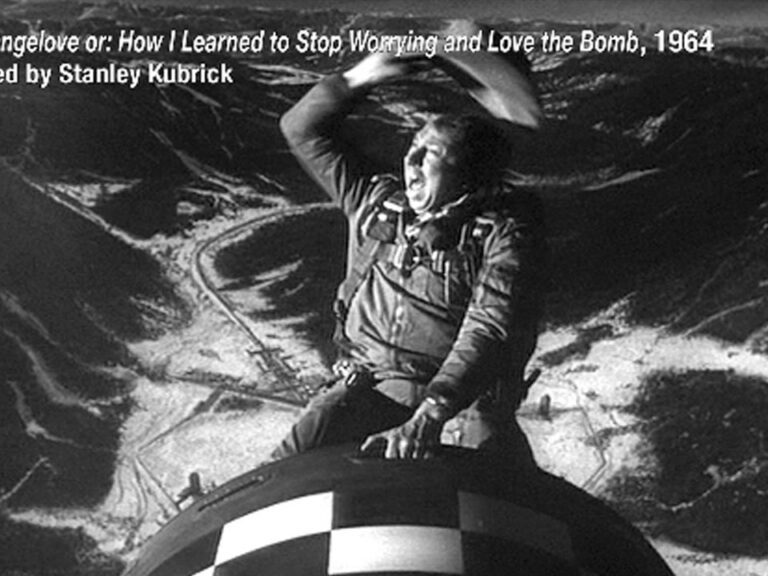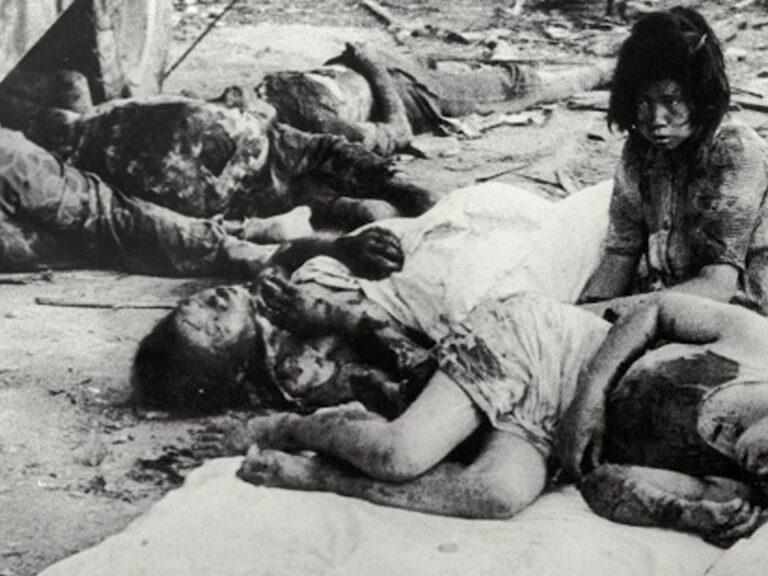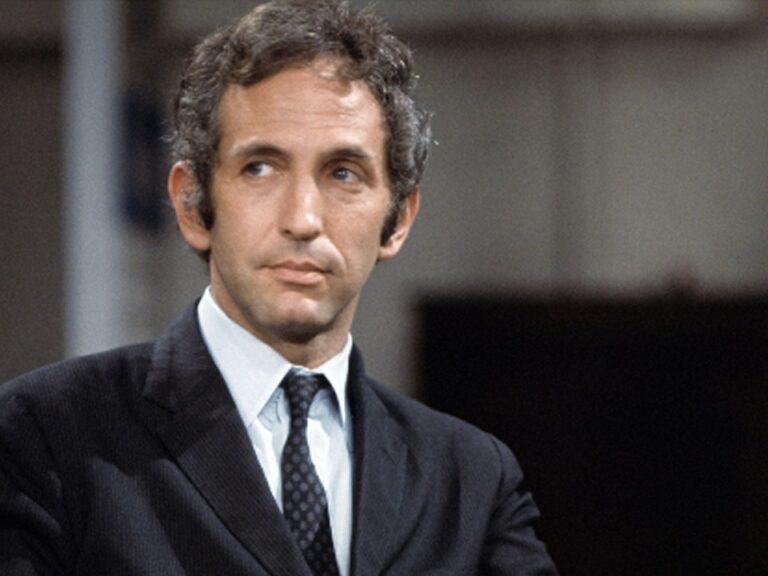This interview was originally published on June 7, 2011. Lawrence Wilkerson, Collin Powell’s former Chief of Staff, reflects on his life journey from “cold warrior” to harsh critic of US foreign policy.
Reality Asserts Itself with Lawrence Wilkerson (2011)
PAUL JAY, SENIOR EDITOR, TRNN: Welcome to The Real News Network. I’m Paul Jay in Washington. We’re continuing our series of interviews with Colonel Lawrence Wilkerson. Thanks for joining us again, Larry. So, in December 2000, Colin Powell’s appointed the new–is going to be the new secretary of state. You’ve already been working for him privately for a few years. So what was that? And then talk about the conversation about come join me at the State Department.
LAWRENCE WILKERSON, FMR. CHIEF OF STAFF TO COLIN POWELL: Well, we’d been doing all manner of things. He went to observe the election of Obasango in Nigeria, for example, with Carter, former president Carter. We did some prep work for that. I was working for him in the DC public schools, did so for about ten years, as a matter of fact, finding out what the worst failed school system in America looked like. We’d done a number of sort of off-the-wall things together. And in December, when it became clear that George W. Bush, due to the Supreme Court decision, was going to be president, the next president of the United States, it was just sort of assumed that I would transfer my allegiance from a private one to a public one by moving with him into the transition office in the State Department. So I think it was December 20 we went down to the transition office at Foggy Bottom, and I assumed my position there, and then, later, in February, took the oath and became a member of the policy planning staff at the State Department.
JAY: So with the beginning of the Bush administration, what’s your feelings about President Bush and Vice President Cheney at the start?
WILKERSON: Well, I’d seen Vice President Cheney as secretary of defense, of course, when Powell was chairman. For over three years I’d seen–well, four years, I’d seen Cheney as secretary of defense. And he was a very competent secretary of defense. Next to James Forrestal, I would probably have pronounced him the best secretary of defense since World War II, since the position was created. Bush I didn’t know anything about at all, except as governor of Texas, and I knew, having been a resident of Texas at one time, that that was a feckless position. He didn’t do much as governor of Texas. So I had some concern about Bush. Plus one of Powell’s dearest friends had told me, don’t go to work for President Bush; he’s a jerk; he’s a complete and utter jerk. She refused to come back and go to work for President Bush.
JAY: This is your friend.
WILKERSON: Yeah. She was asked to. I believe she stayed out in Nevada to be chief of staff to the governor of Nevada at the time.
JAY: And who’s this?
WILKERSON: Marybel Batjer. And she based her negative view of Bush on No Child Left Behind and what she thought he was going to do to the school system, plus other things too. But I didn’t pay any attention to her. I was listening to the siren call of my now, what, 14-year association with Colin Powell.
JAY: Now, were you or Powell concerned about who Cheney had grouped around him? I mean, you know, Wolfowitz, and you have these–.
WILKERSON: Well, we’d seen these characters before in the George H. W. Bush administration, and Bush had summed them up quite well: the crazies in the basement of the Pentagon. I think there were those who thought this was not the best team in the world, perhaps, but there was no one, including my boss, who didn’t think they could handle them, didn’t think they could, you know, run circles around them, ultimately.
JAY: Were you aware that this document, Project for a New American Century–you know the document now, but were you aware then of the document and what these guys that were grouping around Cheney had an agenda?
WILKERSON: I was aware of the document, because Rich Armitage, the deputy secretary of state, had signed the document. I didn’t think that the document was anything–well, I thought it was like most documents that come from think tanks: it sits on the shelf and gathers dust after it’s made money for the people who wrote it or the organization that promoted it. You don’t worry about those things too much. And I think there has been some hype about how influential it was in influencing the Bush administration to do what it did. I think it’s the other way around. I think the people and the type of people who participated in that project were the people who influenced the Bush administration from their place in office, or, like Richard Perle [crosstalk] on the outside.
JAY: Yeah, I think that’s the point, that it’s an expression of what was in the minds of the people that came to power.
WILKERSON: And as Powell said to me one time when we were putting together–. We started out putting together the national security strategy in the State Department policy planning staff, and then Dr. Rice took it over on the NSC staff. And then we get a version of it back over. A contractor had written it, as I recall. And we get a version of it. And we’re looking at Section 5, which is the part that everybody looks at. It talks about preemptive war and so forth. And, you know, there was no real reaction on our part at that time, because we thought, well, this has always been our policy. Under Article 51 of the UN Charter you have the right to self-defense. If someone’s putting a rocket up and going to shoot it at you, you can knock it down. That’s how we looked at it at the time. We didn’t take it as being this all-consuming change in American national security strategy that would become the dominant aspect of that strategy, which some would argue the Iraq War in 2003 exemplified.
JAY: Because the PNAC document’s pretty explicit that international law might have made some sense when there’s another superpower, but we don’t need international law when we’re the only bully in town.
WILKERSON: Yeah.
JAY: And number two, now is the time to project US military power and make the world, shape the world as we think it should be, which is a pretty radical motion to certainly put in print. And these guys now take over the vice presidency and the Defense Department.
WILKERSON: But you don’t see that kind of language in the national security strategy. You do see some forward-leaning language–there’s no question about that, especially in Section 5. But you don’t see that kind of language incorporated and signed by the president of the United States as the national security strategy of the United States. Now, you can say that you see that sort of strategy implemented in Iraq, and I’m not going to disagree with you there. And would it have gone on had we been more successful? Would we then have done Syria and Iran? And, you know, the ultimate target is Egypt and so forth, as some of the neocons held. I don’t know. I don’t think so, because I really believe Cheney’s hold on power and his influence over the president in terms of foreign policy and national security decision making was such that Iraq was it, and Iraq was oil. It was all about oil. Once you’re in Iraq, once you got boots on the ground in Iraq, you’re in the middle of the oil. You’re there. And so you don’t need the other places. I really don’t think Dick Cheney would have marched on to Syria, marched on to Iran, and so forth. Now, would he if it had been singularly easy to do so, you know, if Iraq had really been a piece of cake and we’d been met with flowers in the street and so forth like he predicted? I don’t know. Maybe he would have. He’s a pragmatist. He might have gone on if he thought he could do the same thing in other places.
JAY: Two thousand and one, you just joined Powell. You’re now working at the State Department. Now, we know from the 9/11 Commission that Richard Clarke is trying to get a hearing, saying that there are a great deal of evidence and information and intelligence coming that something’s coming, there could be a terrorist attack. Clarke says at the 9/11 Commission, our hair was on fire, but we couldn’t get anyone to hear us, meaning Condoleezza Rice. Are you aware that this is going on in the summer, that Clarke and his gang–and, in fact, that Clarke had been demoted when Bush came to power? He was, like, a cabinet-level antiterrorism czar under Clinton, gets demoted under Bush. So are you aware of all this? Or is it kind of off your radar?
WILKERSON: I knew that Clarke had been stepped down from cabinet-level responsibility to below that by Dr. Rice. I knew that my boss, Richard Haass, Ambassador Richard Haass, the director of policy planning, was talking with Condi virtually every day. And I will say this: I never heard al-Qaeda mentioned in the entire time period up to September 11, 2001. Never.
JAY: It doesn’t make sense when the number one person on the FBI Most Wanted list for four or five years prior to 9/11 is bin Laden. You have Clarke, and I understand George Tenet, when he does his first national security briefings, says al-Qaeda’s the number one problem. And then nothing.
WILKERSON: I think it’s best reflected by what I’m told Paul Wolfowitz said, and that was, why are you talking to me about al-Qaeda? Talk to me about Iraq. And you can say that Wolfowitz was an aberration. You can say he didn’t speak for the administration. He was the number two man in the Defense Department. He was the deputy secretary of defense. I do know that my boss, Colin Powell, was somewhat concerned about al-Qaeda, but he was concerned about a terrorist attack on an embassy overseas, because we’d had an attack in Dar es Salaam and in Nairobi. And of course there’d been the attack on Cole, USS Cole, in Port Aden, Yemen. And so we knew we were probably going to get hit again by a terrorist attack overseas. So we were asking for billions of dollars to make our embassies safer, make our consulates safer, build new embassy buildings, new embassies and consulates, and so forth, get blowback distance from streets. We were very interested in that. But we weren’t focused on al-Qaeda attacking the United States. One would say the secretary of state had no responsibility to be so focused. But I heard it nowhere else in the government. I heard all manner of other things. Ballistic missile defense just dominated all the conversations about national security. Lowering taxes dominated all the domestic conversation. So everywhere I went, meeting after meeting after meeting, the conversation was not about al-Qaeda.
JAY: I mean, what we know now, looking back–and I’m asking what did you know then–when Tenet says it’s our number one threat, and then it disappears, somebody has to decide, well, we’re not going to listen to Tenet. Either he doesn’t know, or we don’t care, or something else.
WILKERSON: I don’t think it was a question of Dick Cheney, who after all is running national security policy from the very beginning. I don’t think he said something like that. I think what he implied and what he acted on was higher priorities. And the higher priorities were things like Iraq, Iran, ballistic missile defense, abrogation of the ABM Treaty, which we had to do in order to build ballistic missile defense. This is all I heard about. This is what everybody talked about day in and day out. So I think it wasn’t necessarily true that Cheney didn’t think al-Qaeda and George Tenet’s briefings on al-Qaeda were important; it was that there were dozens of things that were more important. And so al-Qaeda took, if you will, a back seat.
JAY: Now, when this memo comes saying bin Laden plans to attack America–I may not be quoting it exactly, but I think I’m close–and Condoleezza Rice gets it, are you aware in the State Department that there is such a memo?
WILKERSON: My boss, Secretary Powell, may have been, and Deputy Secretary Armitage may have been, because they were plugged into the CIA pretty well and into Condi pretty well. No, I was not. And as I said, Richard Haass, my boss, my boss in policy planning, was plugged into Dr. Rice pretty well, and I don’t recall Richard ever mentioning al-Qaeda.
JAY: So 9/11 happens. Now, after not considering al-Qaeda and bin Laden such a priority, it seemed like within hours of the 9/11 attack it’s already being pinned on bin Laden. So if you think that, something doesn’t compute there, that within a day you can say it’s bin Laden, and the day before it wasn’t a priority.
WILKERSON: Well, I think you had to do that for two reasons, really. One, it probably was true [incompr.] like Paul Hughes, who was in the Pentagon at the time, the moment the plane hit the Pentagon and he contemplated what had happened, he said, I know the only organization in the world that would have done this is al-Qaeda. I mean, he says this on film. So I think that’s kind of the reaction people had. They’re–you know, you run through a mental list, who did this, and you come to al-Qaeda. We’d already had, as I said, the embassy in Dar es Salaam and Nairobi, and we’d had a warship, US warship, hit in port. So, I mean, this is kind of what people thought as they ran through their mental list of who did this. I do increasingly–as I do my research, I have come to believe that there was a sort of epiphany in Cheney’s office, and the epiphany probably was accompanied by subsidiary epiphanies, if you will, by Karl Rove and others on a different basis–a political basis in Rove’s case. And it was not only is this bad because it happened on our watch, and therefore we have to stop it from happening again, but wow, look at the opportunity here on Rove’s part politically–man, we milk this baby and we can be in power for a long time. The politics of fear is, after all, very effective. And on the side of Dick Cheney, wow, all the things that I really wanted to do that I was contemplating having problems doing, like invade Iraq, they’ve suddenly become very simple. All I’ve got to do is associate them with this catastrophe. And so, while I think there was this angst, this psychological angst about, ooh, my God, this happened on my watch, I can’t let it happen again, I’ve got to be draconian in my attempts to keep it from happening again; there’s also this kind of opportunistic side. And it maybe came a little bit later, but it came nonetheless, and it was we can exploit this and we can exploit it for a number of reasons.
JAY: Now, I’ve asked you about this in previous interviews, but I’ll ask you again. In the Project for a New America Century, one of the things it says is we should be asserting, projecting US power. But it says American public opinion is not in favor of this, and we’re going to need a new Pearl Harbor before we could ever get the American public behind this. And this is something that people [who] believe that there’s more going on here than we know have often pointed to. Given the demotion of Clarke, given the lack of attention to al-Qaeda and this kind of a potential attack, even after Tenet says what he says, is it possible in your mind that they could have said, well, this isn’t a priority, and if something happened, it ain’t so bad?
WILKERSON: I don’t think I’ve grown that cynical yet. Perhaps one day I will. I don’t attribute that much competence to any national security team to be able to actually plan something like 9/11 or to anticipate–.
JAY: Well, I’m not even going that far. I’m going–.
WILKERSON: Well, you’re going the anticipation route.
JAY: Well, I’m saying that we’re hearing stuff from, apparently, according to various sources, Mossad tried to tell the FBI and CIA that something was coming. I believe Egyptian intelligence, French intelligence. There’s the way the FBI was instructed. Don’t–like, the FBI doesn’t have to worry about foreign policy issues, but they were told don’t worry about terrorism. And when Coleen Rowley and her group in Minneapolis tried to tell the FBI headquarters that there’s a guy learning how to take off and he isn’t learning how to land, they’re told: don’t look into his computer. I mean, so many of these things–as Clarke winds up saying, our hair was on fire. It would seem to me you would say, we should pay some attention to this. And if you don’t say that, some thinking goes behind not saying that.
WILKERSON: I think it’s fair to say Dick Clarke’s hair was on fire. I don’t think Dr. Rice or Dick Cheney or Paul Wolfowitz or Donald Rumsfeld–
JAY: No, no. Clarke and his gang. Yeah.
WILKERSON: –I don’t think their hair was on fire. Their hair was on fire for abrogating the ABM Treaty, building ballistic missile defense, lowering taxes, instituting No Child Left Behind. This was an administration that came in with six or seven priorities, and it was fixated on them. Nine-Eleven gave them opportunity to implement a couple of those priorities a lot faster than they’d thought, and they were very opportunistic, and clever, even, in getting that to happen. Lied a lot, too, I think, in order to get that to happen. But I don’t think it was a case of let’s just push all this aside so that when it happens it’ll be a profound crisis that we can exploit. I’m not that cynical yet.
JAY: Okay. That is what happened. We’re not necessarily agreeing on how much they were involved in it.
WILKERSON: Yes.
JAY: Okay. Alright. Where are you on 9/11? And how does it affect your view of the world?
WILKERSON: Well, I’d just given a talk early in the morning, a breakfast talk, and I was coming back to the State Department and getting out of the taxi, and the radio reported the first tower being hit.
JAY: Alright. In the next segment of our interview, let’s pick up where you were on 9/11 and how it affected your view of the world. Please join us for the next segment of our interview with Larry Wilkerson on The Real News Network.
Never miss another story
Subscribe to theAnalysis.news – Newsletter
Lawrence Wilkerson is a retired United States Army Colonel and former chief of staff to United States Secretary of State Colin Powell.

